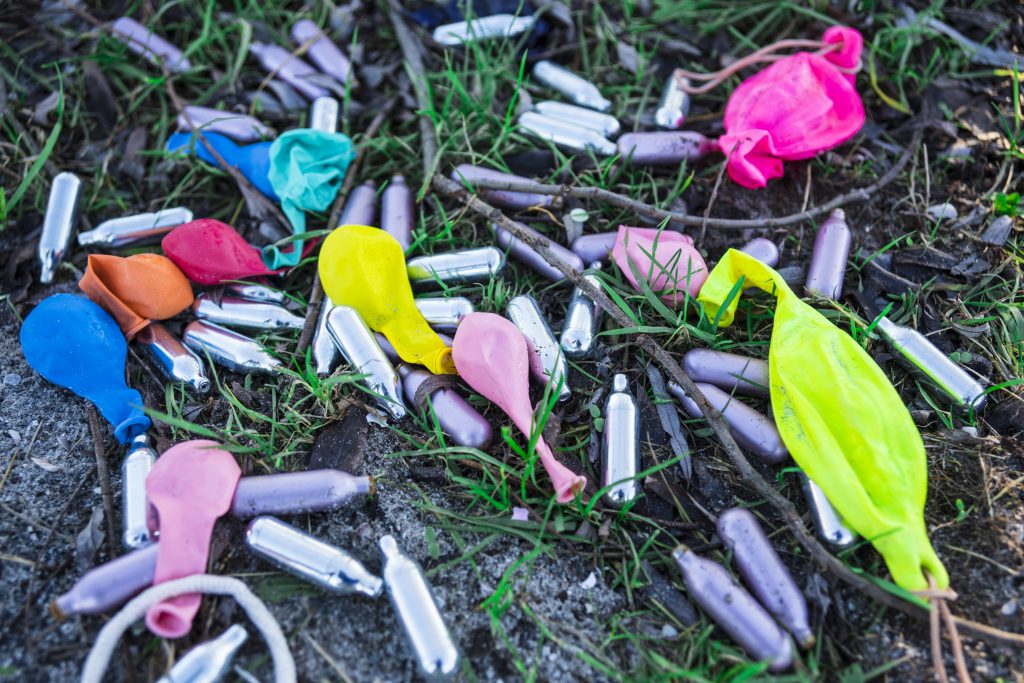Possession of laughing gas to be criminal offence
Possessing laughing gas is to be made a criminal offence for the first time, the government has announced.
There will also be tighter controls on retailers to prevent the supply of nitrous oxide for misuse.
It goes against recommendations from the Advisory Council on the Misuse of Drugs (ACMD) which recently advised against new laws to ban nitrous oxide.
Unveiling his plans to clamp down on anti-social behaviour on Monday, Prime Minister Rishi Sunak said there was a need for a “zero-tolerance” approach and stressed the importance of “immediate justice”.
Speaking at a boxing club in Chelmsford, Essex, Mr Sunak said he wanted to deal with a small minority of people who were being disruptive.
He confirmed the government’s stance on laughing gas, saying it would tackle the “scourge” of drugs.
Nitrous oxide, sold in metal canisters, is known as NOS and is one of the most-used drugs by UK 16 to 24-year-olds.
It is already illegal to produce or supply the gas for its psychoactive effects under the Psychoactive Substances Act 2016. The law makes production, supply and importation of nitrous oxide for human consumption illegal, but not possession.
The plans will also give police and councils additional powers to deal with people who are “causing nuisance” by blocking shop doorways, asking for money at cash machines or leaving their belongings on pavements.
These people will then be “directed towards the support they need”, such as accommodation, mental health or substance misuse services.
“The debris and paraphernalia which causes blight will then be cleared,” the government added.
Outlining the reasons behind the nitrous oxide ban, the government said it was “concerned about the rise in health and social harms” of laughing gas, “particularly to young people”.
“We are for the first time making possession of nitrous oxide an offence; preventing supply for misuse by putting tighter controls on retailers; and giving greater powers to law enforcement to take action against those who are in breach,” it added.
Heavy use can lead to a vitamin deficiency that damages nerves in the spinal column.
Several drugs charities have criticised the announcement, claiming criminalising possession could lead to the drug becoming more dangerous.
David Badcock, from the Drug Science Scientific Committee, said he was “disheartened” at the proposed ban and the government was “going completely against its own advisory panel”.
“What’s the point in the ACMD when the very best scientists and experts have looked at the evidence and advised what to do and they completely ignore it?
“It won’t stop young people using it, banning any substance just drives it into criminal hands and the inherent risks associated with the black market come into play, I don’t think it will stop people doing it”, he told the PA news agency.









